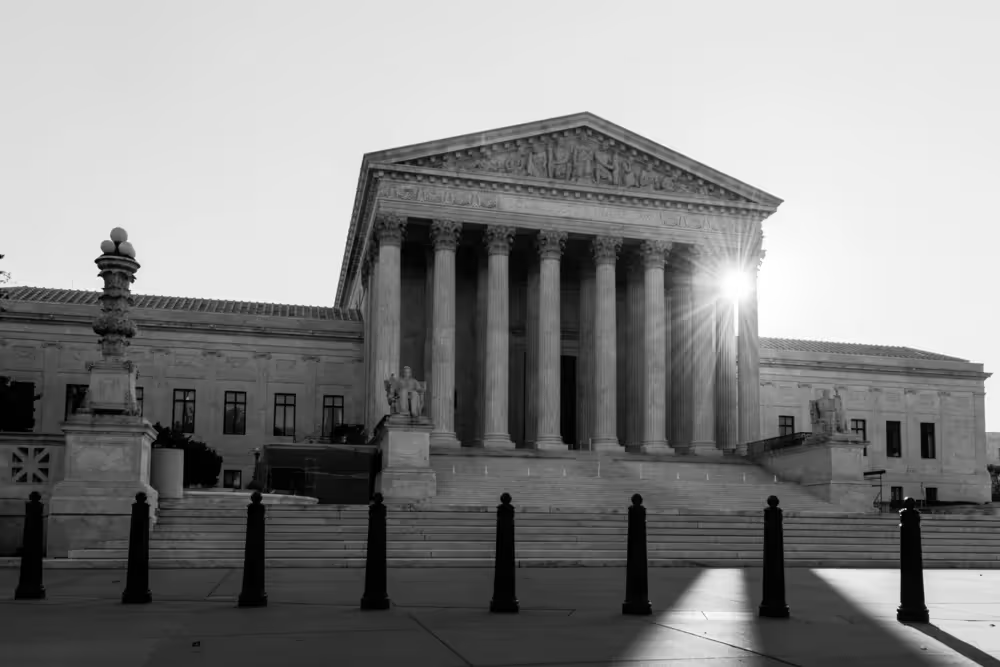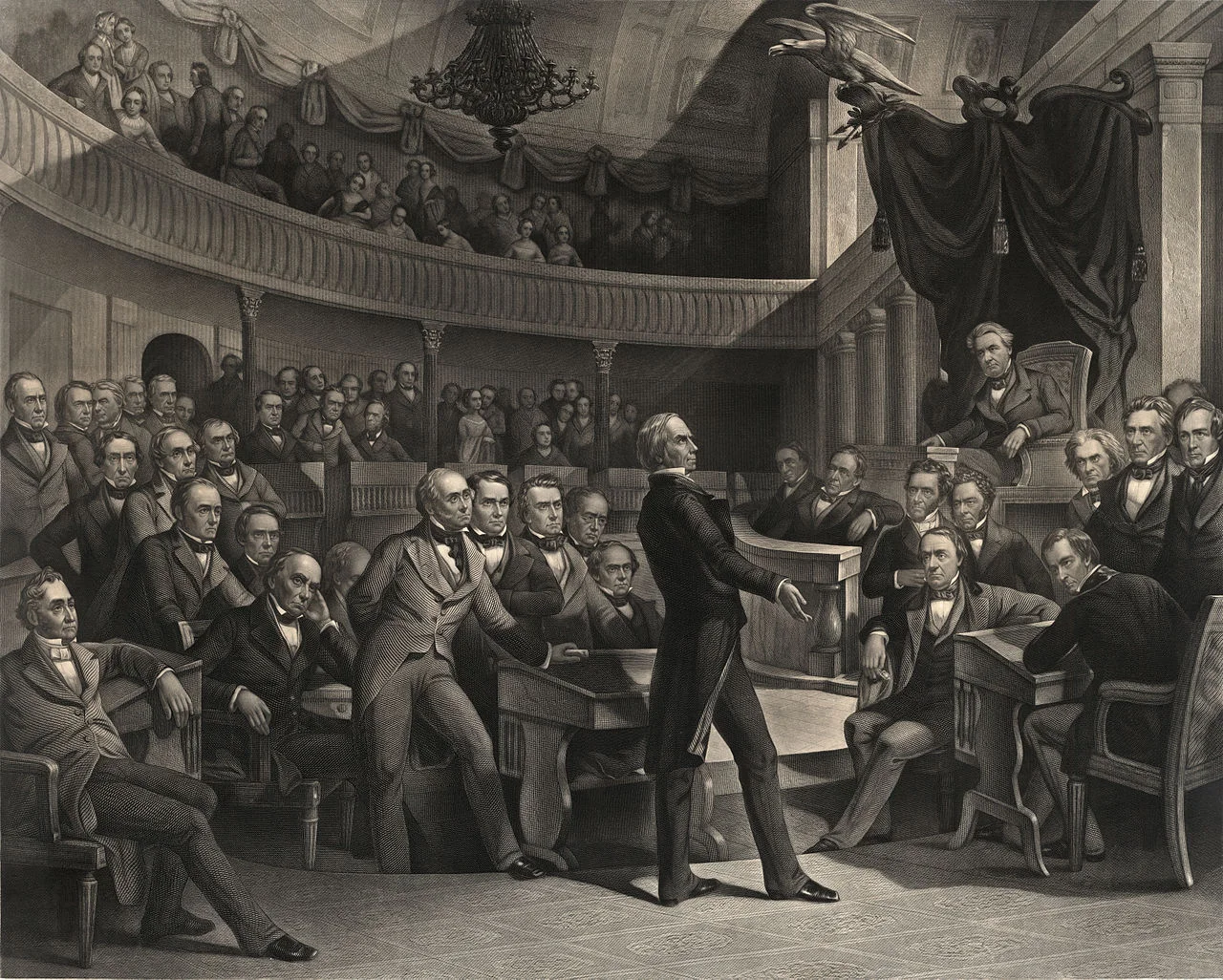
What Skrmetti Should Have Said
Tennessee can express moral disapproval of transgenderism for minors.
I often ask students two questions inspired by Justice Antonin Scalia: identify a decision where you disagree with the outcome, but agree with the reasoning, and identify a decision where you agree with the outcome, but disagree with the reasoning. These questions serve as a gut-check to ensure that their reasoning does not simply follow their policy preferences. Students generally answer the first question with ease. Justice Scalia, for example, often cited his vote to protect a protester’s First Amendment right to burn an American flag. But students have a much tougher time with the second question. Usually, if they agree with the bottom line of an opinion, they find a way to accept the reasoning, even if not perfectly.
For me, United States v. Skrmetti falls into the second category. The Court, by a 6-3 vote, held that Tennessee can ban doctors from “transitioning” minors to the opposite sex. This holding would have seemed so obvious only a generation ago. Yet, in a short span, elite opinion shifted such that lower court judges and members of the Supreme Court came to believe this law was clearly unconstitutional. The majority opinion by Chief Justice John Roberts, as well as concurrences by Justices Clarence Thomas, Amy Coney Barrett, and Samuel Alito, got the bottom line correct. But upon reflection, I have doubts they had the best legal argument. Justice Sonia Sotomayor’s dissent proved more persuasive than I expected–not a sentence I write very often. In short, Tennessee denied certain medical treatment to minors in large part based on their biological sex, and under longstanding precedent, sex-based classifications are reviewed more stringently.
That doesn’t mean the Tennessee law was unconstitutional. Indeed, I think the state has such a strong interest in protecting children — especially from harm by their parents and doctors — that the law would still pass constitutional muster. But the majority opinion, and to a lesser extent the concurrences, engaged in hyper-technical readings of the statute that distracted from the real legal issues. To hear Chief Justice Roberts tell it, Tennessee simply issued a mundane regulation about which medical treatments are available for minors. But this approach ignored the real reason why Tennessee and so many other states have enacted such laws: the legislatures morally disapprove of transgenderism for minors, and sought to prevent children from medically transitioning to another sex. Full stop.
We can start with President Donald Trump’s executive order, signed on inauguration day. He stated, clearly, that there are “two sexes, male and female.” This is as much a statement of scientific fact as a declaration of moral belief. The order says as much: “Basing Federal policy on truth is critical to scientific inquiry, public safety, morale, and trust in government itself.” If one believes that under the plan of G-d, nature, or evolution–take your pick–there are two sexes, then those who deviate from that plan are wrong. This is the sort of moral disapproval that has undergirded Western civilization. To be sure, Tennessee identified other reasons for the law. For example, the science about transitioning minors is unsettled, and the long-term consequences of transitioning are unknown. But those concerns are at the periphery. Indeed, as Justice Sotomayor’s dissent points out, puberty blockers are permissible for minors to maintain their biological sex, but not to change their biological sex. If these treatments are so dangerous, they would probably be banned across the board, and not just for transitioners.
The opinions in Skrmetti stretched more than a hundred pages. But the analysis could have been pretty simple: the legislature concluded that transitioning minors was immoral, and the court finds that this judgment is rational. Why didn’t the Court take this straightforward path? Alas, the Court remains in the shadow of Justice Anthony Kennedy.
In a series of decisions stretching two decades, Kennedy found that moral disapproval was not a rational basis to enact legislation, but instead reflected impermissible “animus,” or hatred, of certain groups. First, in Romer v. Evans (1996), Kennedy ruled that Colorado demonstrated impermissible animus by making it harder to provide protections for gays and lesbians. In dissent, Justice Scalia maintained that “moral disapproval of homosexual conduct” was a legitimate governmental interest to justify the law. Second, Lawrence v. Texas (2003) held that Texas exhibited impermissible animus by prohibiting homosexual sodomy. Kennedy wrote that “the fact that the governing majority of a State has traditionally viewed a particular practice as immoral is not a sufficient reason for upholding a law prohibiting the practice.” Scalia, once again in dissent, lamented that Lawrence “effectively decree[d] the end of all morals legislation.” As usual, Scalia was right.
Third, in United States v. Windsor (2013), the federal law defining marriage as the union between a man and a woman was declared unconstitutional. The Defense of Marriage Act, which President Clinton signed, “reflect[ed] and honor[ed] a collective moral judgment” and expressed moral disapproval of homosexuality. However, Kennedy found that this disapproval was not a rational basis for action. Once again, Scalia dissented. He would “require the most extraordinary evidence” before charging that “Congress and the presidency of the United States” were “unhinged members of a wild-eyed lynch mob.” Fourth, in Obergefell v. Hodges (2015), Kennedy ruled that bans on same-sex marriage were motivated by impermissible animus towards gay and lesbian couples. Justice Scalia, in one of his final dissents, regretted that the Court disregarded “the freedom [of the people] to govern themselves.”
The pattern was clear. Justice Kennedy reduced the traditional value of morality in legislation to hateful animus that he would not allow. A fifth case could be added to this quartet: Planned Parenthood v. Casey (1992). Here, Kennedy cast the deciding vote to uphold Roe v. Wade (1973). Much of the case focused on abstractions about “liberty” and “viability,” but at bottom, the state prohibited abortion because the act of terminating a pregnancy was deemed immoral. Kennedy and his colleagues found that interest was simply insufficient. The Casey opinion stated, “Our obligation is to define the liberty of all, not to mandate our own moral code.” Nor could the state mandate its own moral code, so long as Kennedy was in charge.
Dobbs v. Jackson Women’s Health Organization (2022) rightly overruled Roe and Casey. This decision returned the question of abortion to the elected branches. Yet, Dobbs did not repudiate the basis of Roe and Casey, the notion that legislatures are not empowered to enact laws based on public notions of morality. And Skrmetti refused to acknowledge that foundational basis of our republic. Indeed, Justice Barrett paid homage to Justice Kennedy. She wrote, “an individual law ‘inexplicable by anything but animus’ is unconstitutional.” This was the essence of the line of cases stretching from Romer to Obergefell. It is dispiriting that a former Scalia clerk has abandoned her old boss’s mantle and taken up with his jurisprudential nemesis. And I cannot fathom why Justice Thomas signed onto Barrett’s concurrence. (There is still time for him to change his vote before the opinion is officially reported.) The right answer, as Thomas and Scalia argued for decades, is that unless the Constitution expressly protects a constitutional right or class, a law motivated by moral disapproval is valid.
In Dobbs, only Justice Thomas was willing to reconsider cases like Obergefell and Lawrence. Considerations of stare decisis may counsel leaving those precedents in place. Even so, there is no obligation to affirm and extend Justice Kennedy’s method of jurisprudence. Yet Justice Barrett, and arguably the Skrmetti majority, did precisely that.
Future cases will not be so simple to resolve. For example, President Trump’s exclusion of transgender people from the military seems to be driven by a moral disapproval of transgender people in the military. To be sure, the law can be justified as a means to reduce health care costs or promote unit readiness. But these rationales are truly peripheral to the underlying purpose. The Supreme Court issued a temporary ruling allowing the transgender ban to go into effect. When the case reaches the Court in the regular course, the Justices can tap dance around the history of the ban. Or, the Court can acknowledge reality: Trump had a rational basis to morally disapprove of transgender servicemembers. I don’t think such a holding would require overruling Windsor or other cases, but the Court is under no obligation to extend that precedent any further. The right of the people to govern themselves based on morality can be restored. And changes to public morality can occur through the political process, not through the judiciary.
Josh Blackman holds the Centennial Chair of Constitutional Law at the South Texas College of Law Houston. He is a contributing editor to Civitas Outlook.
Constitutionalism

Amicus Brief: Hon. William P. Barr and Hon. Michael B. Mukasey in Support of Petitioners
Former AGs Barr and Mukasey Cite Civitas in a SCOTUS Brief

Rational Judicial Review: Constitutions as Power-sharing Agreements, Secession, and the Problem of Dred Scott
Judicial review and originalism serve as valuable commitment mechanisms to enforce future compliance with a political bargain.

Supreme Court showdown exposes shaky case against birthright citizenship
Supreme Court will hear challenges to Trump's order ending birthright citizenship, testing the 14th Amendment's guarantee for babies born in America.

Men and Women: Equal but Beautifully Distinct
Powerful interests are being served, but they are not those of young women competing in adolescent sports, or the larger need of our society to know that its words, laws, and public speech conform to the reality that we did not summon into being.

Forging a Political Constitution
Thomas Rives Bell urges that separation-of-powers conflicts between Congress and the Executive branch be regarded as political questions beyond federal court intervention.


.avif)










.avif)



